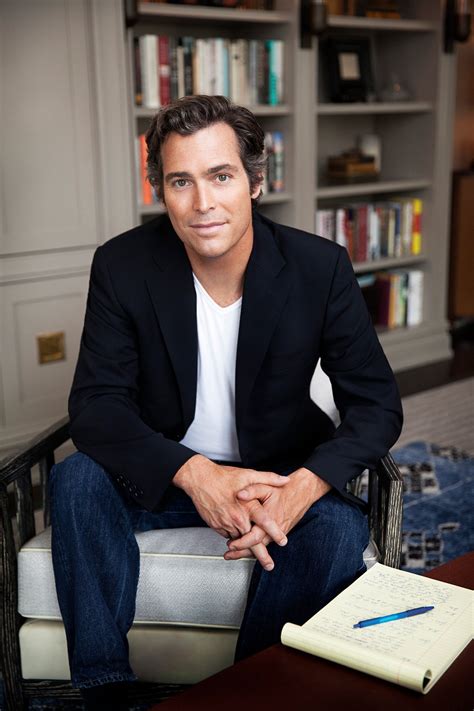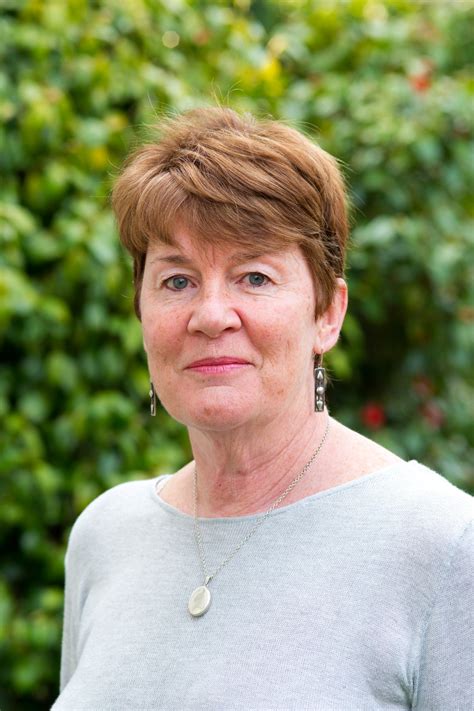A Quote by Gail Simone
Leaving a book is hard - 'Secret Six' was a book that people cared about. Even years later, the digital sales are great; the trades and single issues are expensive and highly sought after. It was meaningful to a lot of readers, which is endlessly gratifying.
Related Quotes
Books are just dead words on paper and it is the readers who bring the stories alive. Previously, writers wrote a book and sent it out into the world. A couple of months after publication letters from readers might arrive. And, leaving aside the professional reviews, it is really the reader's opinions that the writer needs. They vote for a book - and a writer - with their hard earned cash every time they go into a bookstore (or online - that's my age showing!) and buy a book.
You will want a book which contains not man's thoughts, but God's - not a book that may amuse you, but a book that can save you - not even a book that can instruct you, but a book on which you can venture an eternity - not only a book which can give relief to your spirit, but redemption to your soul - a book which contains salvation, and conveys it to you, one which shall at once be the Saviour's book and the sinner's.
As somebody who's kind of a technophile, I'm interested in how traditional and digital publishing connect. Maybe ten years ago they were seen as antagonists, but now they complement each other. There's data that shows digital sales actually drive print sales. And even the ways in which pictures and words, text and image, interact - we're seeing these books that are very hard to categorize. All of that is very exciting to me.
People are used to streaming and binge-watching. When they see an author they like, if there's only one book, even if they like the book, they're going to forget about you. The way to keep you in their mind and to get you to become a habit for these readers is you have to have a lot of product out there for them to read.
I began writing books after speaking for several years and I realize that when you have a written book people think that you're smarter than you really are if I can joke. But it's interesting. People will buy your book and hire you without reading the book just because you have a book and you have a book on a subject that they think is of interest to themselves or e to their company.
Along the way, about certain things, you realize, "I don't know anything about this." You think, "Is this going to sound ridiculous?" So I pestered more than a hundred different people over the course of the book. And when I finished the book I gave it to six or seven trusted readers, who are always the same, but I also gave it to a brother of mine who's a doctor and I asked him to read it, and he was very helpful. It's good to have a group of trusted readers. As my kids have grown up, they've joined this group.
There are certain things that I'll hear about and that I think will make a great book and I put it in a file. Sometimes it's a situation that interests me, and I don't even realize what I'm trying to say about it until I get closer to it. Sometimes the book after that I've written 125 pages of, and I can tell you what the book is after that. I just sort of have a linear progression, but more than anything, the topics land in your lap. I don't feel that I go out searching for them.
No one really knows the value of book tours. Whether or not they're good ideas, or if they improve book sales. I happen to think the author is the last person you'd want to talk to about a book. They hate it by that point; they've already moved on to a new lover. Besides, the author never knows what the book is about anyway.
I grew up in the Southwest Bronx. Father an accountant, mother a schoolteacher. Brother was six years older, which explains why I gobbled crystal meth at 12, smoked hashish at 13, and was shooting smack at 17, which explains how I got Hepatitis C, which was the basis of my first book, which was a humor book about dying.
A reader is entitled to believe what he or she believes is consonant with the facts of the book. It is not unusual that readers take away something that is spiritually at variance from what I myself experienced. That's not to say readers make up the book they want. We all have to agree on the facts. But readers bring their histories and all sets of longings. A book will pluck the strings of those longings differently among different readers.





































